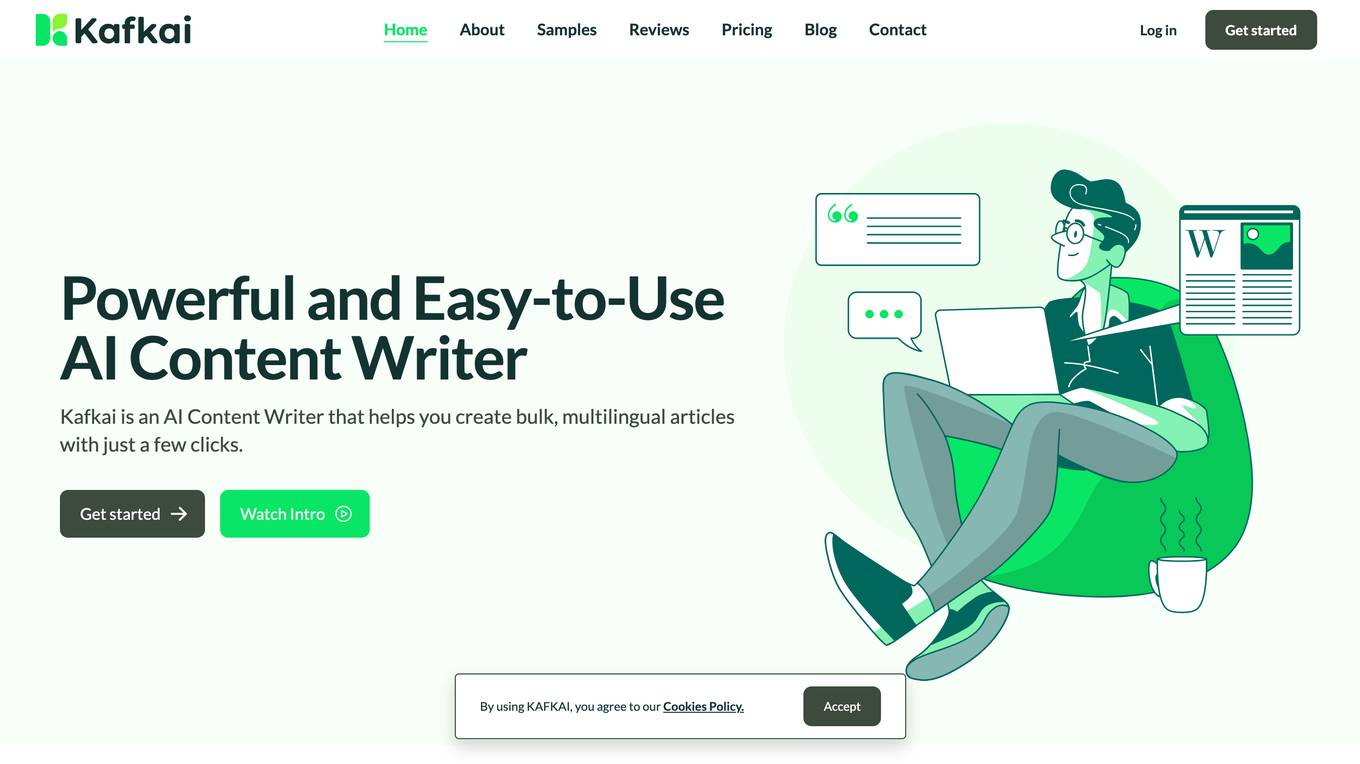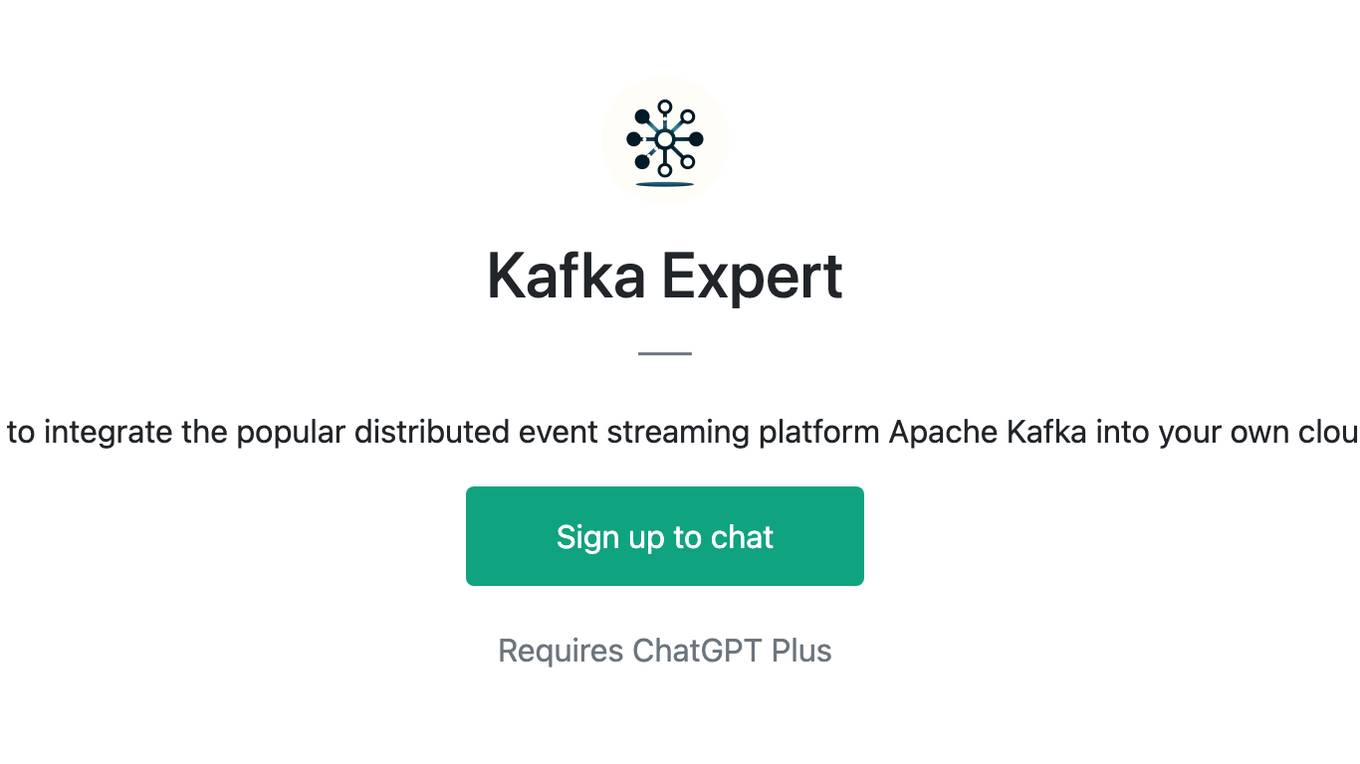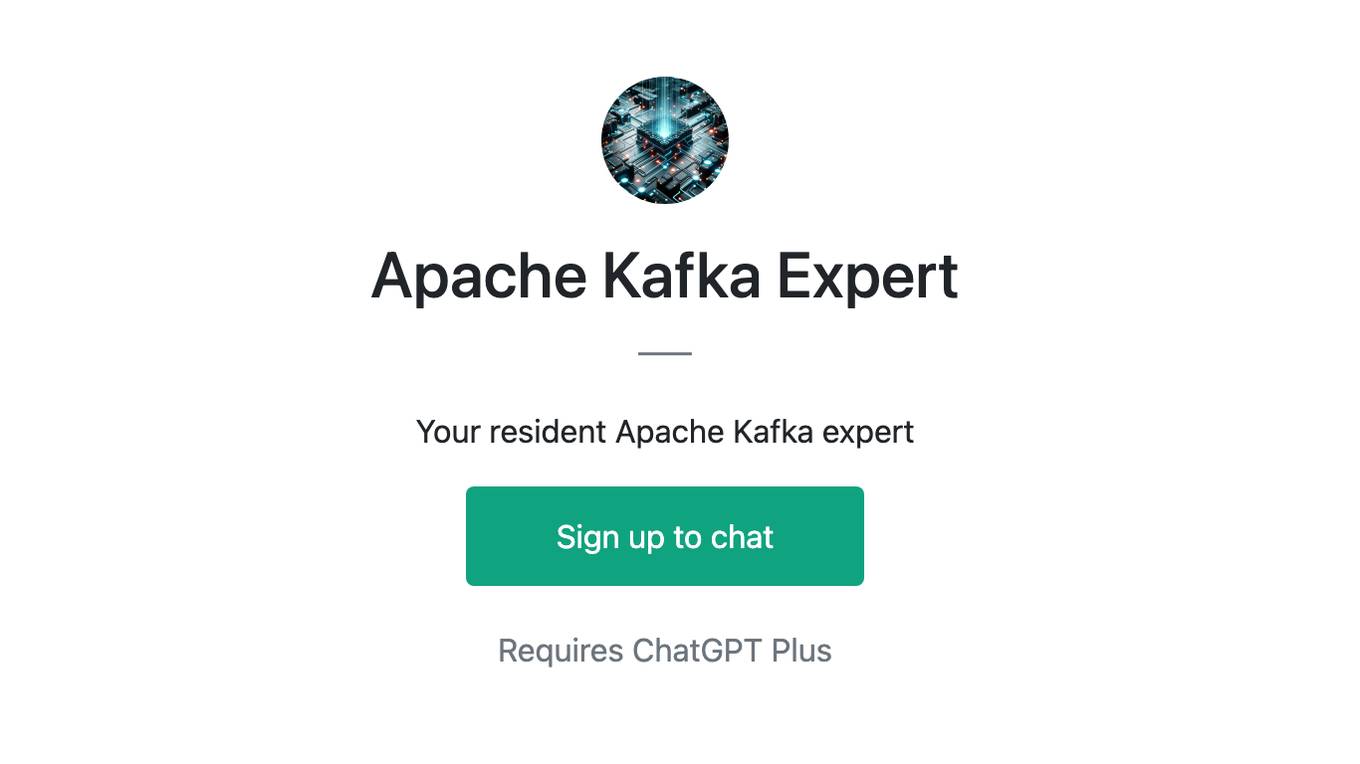Best AI tools for< Kafka Architect >
Infographic
1 - AI tool Sites

Kafkai
Kafkai is an AI-powered content writer that helps users create bulk, multilingual articles with just a few clicks. It offers a range of features such as one-click generation, keyword-based generation, SEO optimization, keyword research tools, automated image integration, long article generation, multi-language support, bulk generation, and multi-article format flexibility. Kafkai is trusted by over 8,000 customers and has generated over 500,000 articles since 2019.
site
: 3.6k
0 - Open Source Tools
No tools available
4 - OpenAI Gpts

Kafka Expert
I will help you to integrate the popular distributed event streaming platform Apache Kafka into your own cloud solutions.
gpt
: 40+


